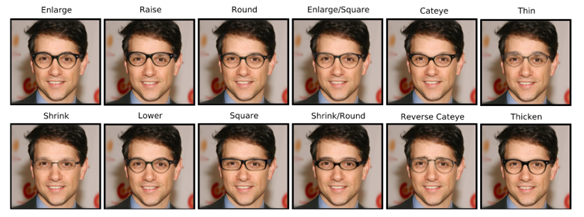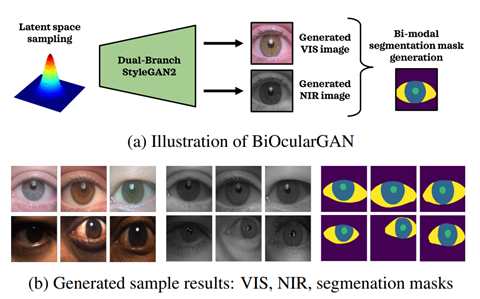The 1st Workshop on Interdisciplinary Applications of
Biometrics and Identity Science
January 5, 2023 / Waikoloa Beach, Hawaii

Follow InterID on Twitter: @interid2023
January 5, 2023 / Waikoloa Beach, Hawaii

Follow InterID on Twitter: @interid2023
Biometric recognition generally involves person identification or identity verification. Researchers within this field have long investigated novel biometric datasets, data collection methodologies, and/or data collection sensors, features or feature extraction approaches, and various matching models to reduce misidentification error, improve data quality, fuse different data sources, etc. Taking advantage of these advances, other disciplines, like medical sciences, mental health, and transportation, have recently begun to explore the application of biometric technologies to, for example, sense change in behavioral outcomes before and after an intervention. Such applications bring attention to the broader interdisciplinary application of biometrics and identity science (BIS) - in which some aspect of the biometric process is leveraged in an interdisciplinary way.

The 1st Workshop on Interdisciplinary Applications of Biometrics and Identity Science (InterID 2023) explores the merging of BIS with other disciplines. InterID 2023 facilitates discussions that extend beyond person recognition and identity verification research agendas, push the boundaries of BIS to generate new standards and BIS use cases applicable to other fields, and lead to the growing adoption of BIS technologies to help resolve broad societal challenges. Specifically, InterID 2023
We invite you join us at the first InterID workshop held at the 2023 IEEE conference series on Automatic Face and Gesture Recognition (FG 2023). InterID 2023 will feature an exciting keynote presentation by Dr. Vitomir Štruc, Associate Professor of Electrical Engineering at the University of Ljubljana, Slovenia. Dr. Štruc has participated in several national and EU funded R&D projects and has authored (or co-authored) more than 100 research papers for leading international peer reviewed journal and conferences related to different areas of computer vision, image processing, pattern recognition, and biometrics. In addition, we have organized an insightful panel of speakers with expertise spanning disciplines such as Hardware Security, Cybersecurity, Mental Health, and Medicine - each of which are leveraging BIS in their work. Authors of accepted papers will also have an opportunity to present their research to our audience.
On behalf of the InterID 2023 organizing committee, please feel a warm invitation to attend InterID 2023. We are excited to see you and your recent work.
Tempestt Neal, Shaun Canavan, and Patrick Flynn
General Co-Chairs, InterID 2023
Papers presented at the FG workshops will be published as part of the FG Proceedings and should, therefore, follow the same presentation guidelines as the main conference.
Workshop papers will be included in IEEE Xplore.
All paper submissions are required to have a small section (~one paragraph) dedicated to explaining the interdisciplinary nature of the work.
The format of this workshop will be hybrid online and onsite. This format proposes format of scientific exchanges in order to satisfy travel restrictions and COVID sanitary precautions, to promote inclusion in the research community (travel costs are high, online presentations will encourage research contributions from geographical regions which would normally be excluded), and to consider ecological issues (e.g., CO2 footprint). The organizing committee is committed to paying attention to equality, diversity, and inclusivity in consideration of invited speakers. This effort starts from the organizing committee and the invited speakers to the program committee.
Note: FG will likely follow a similar approach as the co-located WACV conference and ask all authors of accepted papers to upload a prerecorded talk (and an optional poster) of their presentation into the virtual platform (TBD) which will facilitate a hybrid conference. This also applies to the accepted workshop papers.

| 8:45AM - 9:00AM | Welcome and Opening Remarks |
|---|---|
| 9:00AM - 9:15AM | Paper Presentation I: Localization using Multi-Focal Spatial Attention for Masked Face Recognition Yooshin Cho (KAIST), Hanbyel Cho (KAIST), Hyeong Gwon Hong (KAIST), Jaesung Ahn (KAIST), Dongmin Cho (Alchera inc.), JungWoo Chang (Alchera), Junmo Kim (KAIST) |
| 9:15AM - 9:30AM | Paper Presentation II: Improving Performance of Facial Biometrics With Quality-Driven Dataset Filtering Iurii Medvedev (University of Coimbra); Nuno Goncalves (University of Coimbra) |
| 9:30AM - 10:30AM | Panel: Interdisciplinary Biometrics and Identity Science: Applications, Challenges, and Opportunities Domenic Forte, Steven A. Yatauro Faculty Fellow, Electrical and Computer Engineering Department, University of Florida Giti Javidi, Professor, Muma College of Business, University of South Florida Kristin Kosyluk, Department of Mental Health Law and Policy, University of South Florida Yael Bensoussan, Assistant Professor, College of Medicine Otolaryngology, University of South Florida Simon Khan, Research Scientist, Air Force Research Laboratory |
| 10:30AM - 10:45AM | Coffee Break | 10:45AM - 11:00AM | Paper Presentation III: Assessing the Efficacy of a Self-Stigma Reduction Mental Health Program with Mobile Biometrics: Work-in-Progress Nele Loecher (University of South Florida); Sayde L King (University of South Florida); Joseph Cabo (University of South Florida); Tempestt Neal (University of South Florida); Kristin Kosyluk (University of South Florida) |
| 11:00AM - 11:15AM | Paper Presentation IV: Hierarchically Organized Computer Vision in Support of Multi-Faceted Search for Missing Persons Arturo Miguel Russell Bernal (University of Notre Dame); Jane Cleland-Huang (University of Notre Dame) |
| 11:15AM - 12:00PM | Keynote Address: Generative Models in Computer Vision: From Fashion and Beauty to Biometrics Dr. Vitomir Štruc |
| 12:00PM - 12:15PM | Closing Remarks |
Paper submissions for InterID 2023 will be handled through the CMT system. Please submit your article by the September 12, 2022 deadline. According to FG guidelines, papers longer than six pages will be subject to a page fee (100 USD per page) for the extra pages (two max). Submissions have to be in pdf format and are limited to a 10MB file size. Papers that use different formatting from the FG 2023 Latex or Word templates have more than eight pages, or explicitly reveal the authors’ identity will be automatically removed from the reviewing process. Please familiarize yourself with ALL FG submission guidelines prior to submitting to InterID 2023.
Department of Computer Science and Engineering
University of South Florida
Department of Computer Science and Engineering
University of South Florida
Department of Computer Science and Engineering
University of Notre Dame
National Institute of Informatics
Valdosta State University
University of South Florida
Norwegian University of Science and Technology
University of South Florida
San Jose State University
Michigan State University
Wichita State University
Hochschule Darmstadt
University of South Florida
University of South Florida
University of South Florida




